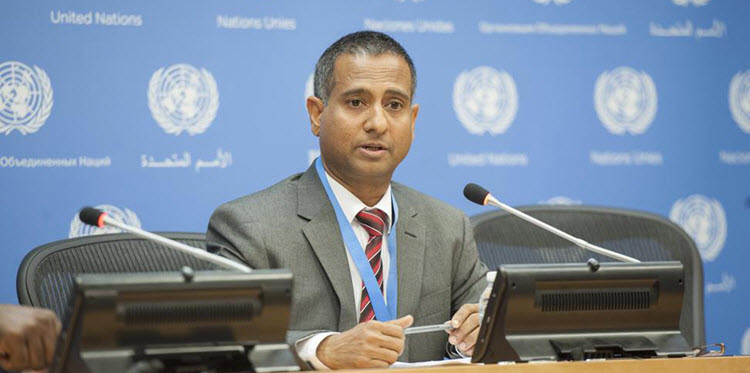
The United Nations Human Rights Council voted on Wednesday to extend the mandate of its Special Rapporteur on the Situation of Human Rights in Iran.
Political prisoners in Iran, including supporters of the main opposition People’s Mojahedin Organization of Iran (PMOI or MEK) had written to Council Members earlier this month urging them to support the extension of Dr. Ahmed Shaheed’s mandate in this Council session.
The decision was adopted by a vote of 20-15 with 11 abstentions.
Dr. Shaheed in a report last week to the council raised continuing serious concerns about the extremely high rate of executions, especially for juvenile offenders, and fundamental flaws in the administration of justice in Iran.
Iran’s regime executed at least 966 prisoners in 2015, the highest such rate in 10 years, Dr. Shaheed said as he presented his latest report to the Human Rights Council in Geneva on March 14.
“With at least 16 juvenile offenders reportedly hanged between 2014 [and] 2015, Iran remains one of a few countries still resorting to this practice despite a strict prohibition against it under international law,” Dr. Shaheed said, urging the Iranian regime’s officials to “put aside efforts at piecemeal reform in this area and ensure, once and for all, that no boy or girl who commits a crime under the age of 18 is ever put to death.”
Dr. Shaheed also highlighted fundamental flaws in the administration of criminal justice, ranging from laws that expressly violate the Iranian regime’s legal obligations to the failure of security, intelligence and judiciary officials to faithfully and properly implement provisions of Iranian law that comply with international law.
Dr. Shaheed noted reports that individuals accused of national security and drug crimes are often deprived of the most basic due process and fair trial rights, including proper access to lawyers, long periods of incommunicado detention, torture and ill-treatment and forced confessions used in court to secure convictions.
Dr. Shaheed’s report, which assesses developments since October 2015, also covers other areas of serious concern such as restrictions on the right to freedom of expression, freedom of association and the right to free and fair elections, women’s rights and concerns regarding the rights of religious and ethnic minorities, according to the UN website.







